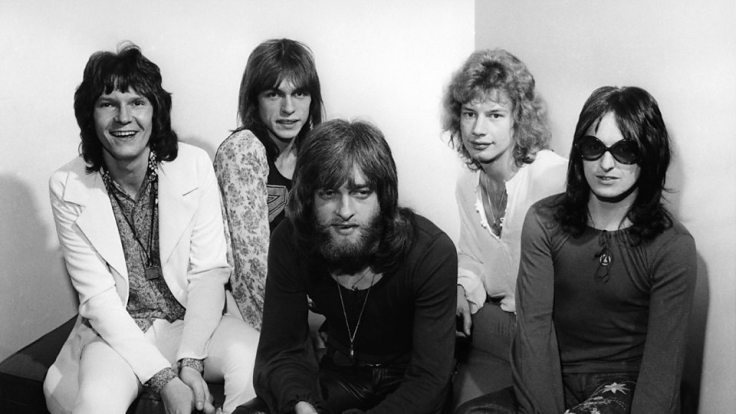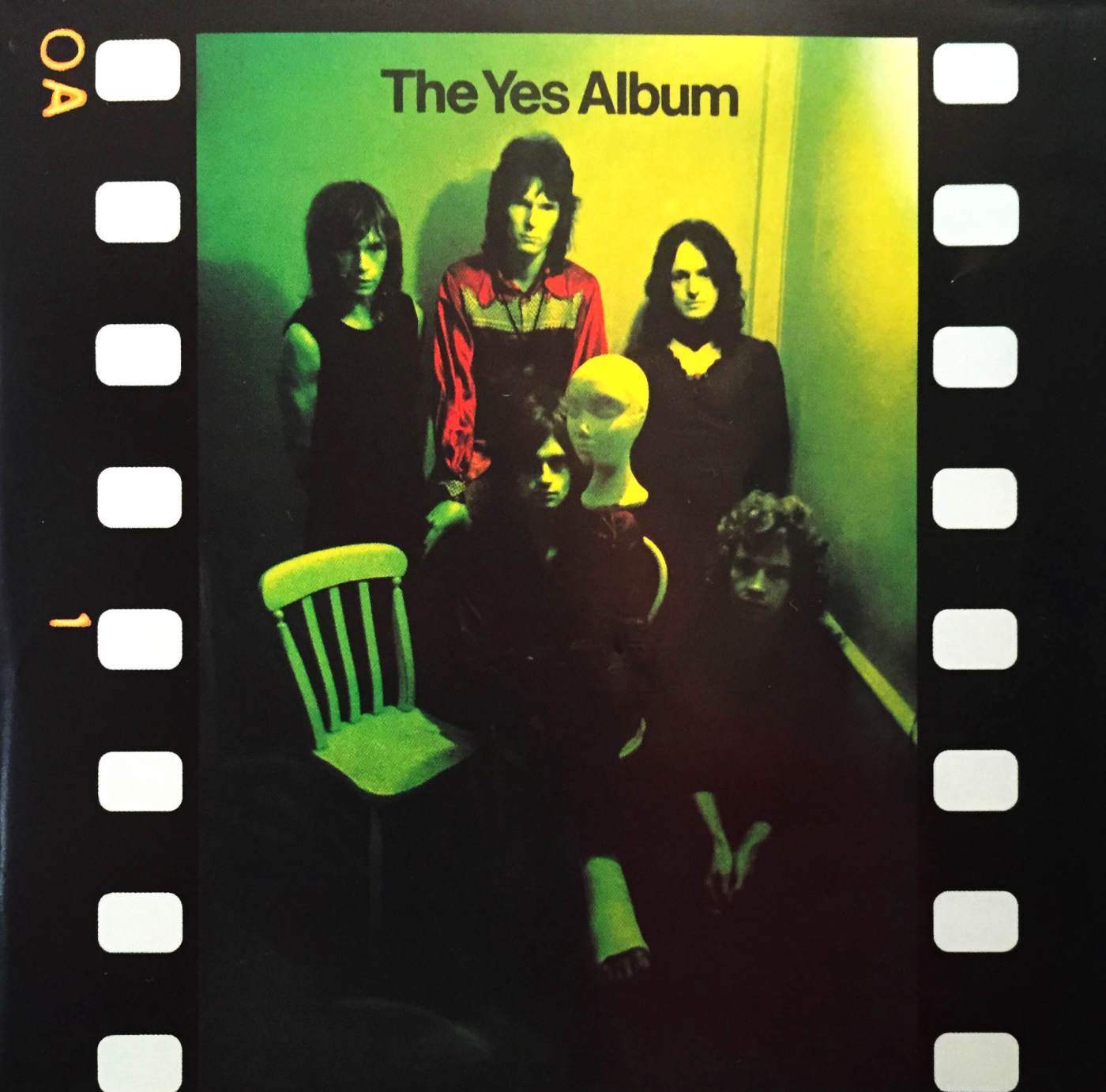The Yes Album is the third studio album by Yes, founded in 1968.
The Yes Album is a clear leap from the prog-inspired rock of the first two albums towards the deep end of progressive rock. However, Yes is only about halfway through the pool at this point. For although the songs are longer than on the previous albums, they are still relatively conventional in structure. Especially the three long songs ”Yours Is No Disgrace”, ”Starship Troopers” and ”Perpetual Change”, which last about ten minutes, give a foretaste of the colossal direction in which the band was slowly heading. For the most part, however, even the aforementioned songs are ”just” extended rock songs in structure. Of course, they are very cleverly arranged and contain a wide range of instrumental pyrotechnics.
With The Yes Album, cover songs are finally left out of Yes’ studio albums altogether (they were still occasionally heard live). The songs are mostly credited to vocalist Jon Anderson and bassist Chris Squire, but newcomer guitarist Steve Howe also gets a few credits and the opening track ’Yours Is No Disgrace’ is credited to the whole band. It is also interesting to note that although vocalist Anderson does not play any instrument on the album (apart from the occasional percussion) he has nevertheless, as the main composer on the album, generously made space for long instrumental sections. Of course, Jon Anderson’s composing, especially at this stage, meant throwing around simple ideas that were then refined by the band’s skilled musicians.
The album kicks off with the 10-minute ”Yours Is No Disgrace” with a fanfare-like opening and Steve Howe immediately shows what he’s made of with his fierce electric guitar playing. The biggest impression of the song, however, is made by Chris Squire’s handsome bass lines that carry the music at many points and are like separate mini-songs in themselves. Squire is certainly not content to be just a bass player, he actually leads the music with his bass guitar on ”Yours Is No Disgrace”. Squire’s playing throughout the album is dizzying and The Yes Album is probably the album where the man’s playing is most clearly mixed to the surface.
The album’s second track ”Clap” lets the newcomer into the spotlight, giving Howe his own upbeat solo number. Played live by Howe alone on acoustic guitar, ”Clap” is a rhythmically virtuosic and strongly country-inspired track. Personally, I don’t think solo numbers of this type really belong on band albums, but as such, Clap is an entertaining and well-played guitar composition. ”Clap” is dedicated to Howe’s then newborn son Dylan, who later became an accomplished jazz drummer and eventually a temporary touring drummer for Yes.
Steve Howe’s guitar, who replaced Peter Banks, gets a rightful place on The Yes Album. Howe’s guitar playing on the album is highly energetic, varied and consistently inventive. Howe draws on a very wide range of influences from classical, jazz and even country. On future albums, Howe had to share solo space more evenly with the nimble-fingered Rick Wakeman, but on The Yes Album, the band’s original organist Tony Kaye is more inclined to leave room for Howe and is more content to comfortably accompany himself in the background.

”Starship Trooper” consists of three parts created by three different composers that have little to do with each other, but surprisingly the whole is functional. The first part ”Life Seeker” is by Anderson, the second ”Disillusion” by Squire and the last ”Würm” by Steve Howe. ”Würm” actually has its roots in Howe’s previous band Bodast, where he had used the same chords on ”Nether Street”. The song takes off majestically in the first part and Jon Anderson sings the song very well. Squire’s ”Disillusion” interestingly doesn’t contain any bass lines at all but has a fast interlude with harmony vocals (Squire playing a central role) and fast acoustic guitar strumming from Howe. Howe’s ”Würm” grows a little more bolero-like and features some fierce guitar soloing at the end with Squire and drummer Bill Bruford tightening up the intensity in the background in a subtly steady way. Live, this ending often grew into a downright epic guitar/percussion battle after Rick Wakeman joined the band.
The fourth song, ”I’ve Seen All Good People”, soon became a big live hit and, for some Yes fans, a minor nuisance. I myself belong to the latter group. The album version is quite pleasant, but live the song turned little bit tiresome. Especially as the first part ”Your Move” of the song, which was originally divided into two parts, was usually left unplayed. That first part, ”Your Move”, is a lovely acoustic track that also features, very rarely on Yes, guest player Colin Coldring of Gnidrolog on the recorder. ”Your Move” moves with great uplift to the longer ”All Good People” section, reminiscent of The Beatles’ ”give peace a chance”. ”All Good People” rocks hard and, as noted, works quite nicely in the studio version, but live the song tended to stretch into a slightly cheesy drunken audience sing-along section.
Read also: Yes – Mirror To The Sky (2023)
From ”All Good People” we move on to the often forgotten gem of the album, ”A Venture”. ”A Venture” is a beautiful song that bounces along gracefully, allowing Kaye to play piano alongside the organ. Jon Anderson’s passionate vocal performance is one of the best on the album. Kaye’s piano parts are also perfectly functional in all their simplicity. Unfortunately, the song ends in a fade-out as Steve Howe begins an interesting-sounding guitar solo deep in the mix. A strange solution.
The album ends with the nine-minute ”Perpetual Change”, which, at least thematically, could well be Yes’ theme song for its tempo in the throes of constant change, for better or worse. ”Perpetual Change” is a very orchestral song (with no symphony orchestra as on Yes’ previous album) and shows clearly the direction the band was going in. On ”Perpetual Change”, Yes effectively exploits contrasts by alternating calmer sung sections with rocking instrumental sections, sometimes doing so with incredible fluidity and sometimes with deliberate and effective surprise. An interesting addition to the orchestral logic of the song is Steve Howe’s country influences which can be heard in his boisterous playing on several occasions.
The Yes Album received positive reviews when it was released and was Yes’ first real success. The album went as high as number four on the UK album charts and into the top 40 in the US. Yes’ future with Atlantic had been in doubt after the poor success of their first two albums, but in the end The Yes Album, which sold over a million copies, saved the band and gave them full artistic freedom for the future. This freedom would be used to great effect in the years to come.
Best tracks: ”Yours is No Disgrace”, ”Starship Trooper”, ”A Venture”, ”Perpetual Change”
Rating: *****
Author: JANNE YLIRUUSI
Tracks
Side A
- ”Yours Is No Disgrace” ( Jon Anderson, Chris Squire, Steve Howe, Tony Kaye, Bill Bruford) 9:41
- ”Clap” (Steve Howe) 3:17
- ”Starship Trooper” (Anderson, Howe, Squire) 9:29
Side B
- ”I’ve Seen All Good People” (Anderson, Squire) 6:56
- ”A Venture” (Anderson) 3:21
- ”Perpetual Change” (Anderson, Squire) 8:59
Band:
Jon Anderson: vocals, percussion Steve Howe: electric guitars, acoustic guitars, vachalia, backing vocals Chris Squire: bass, backing vocals Tony Kaye: piano, organ, Moog Bill Bruford: drums, percussion
Guest:
Colin Goldring: recorder
Producer: Yes & Eddie Offord
Label: Atlantic
More reviewshere.


Jätä kommentti